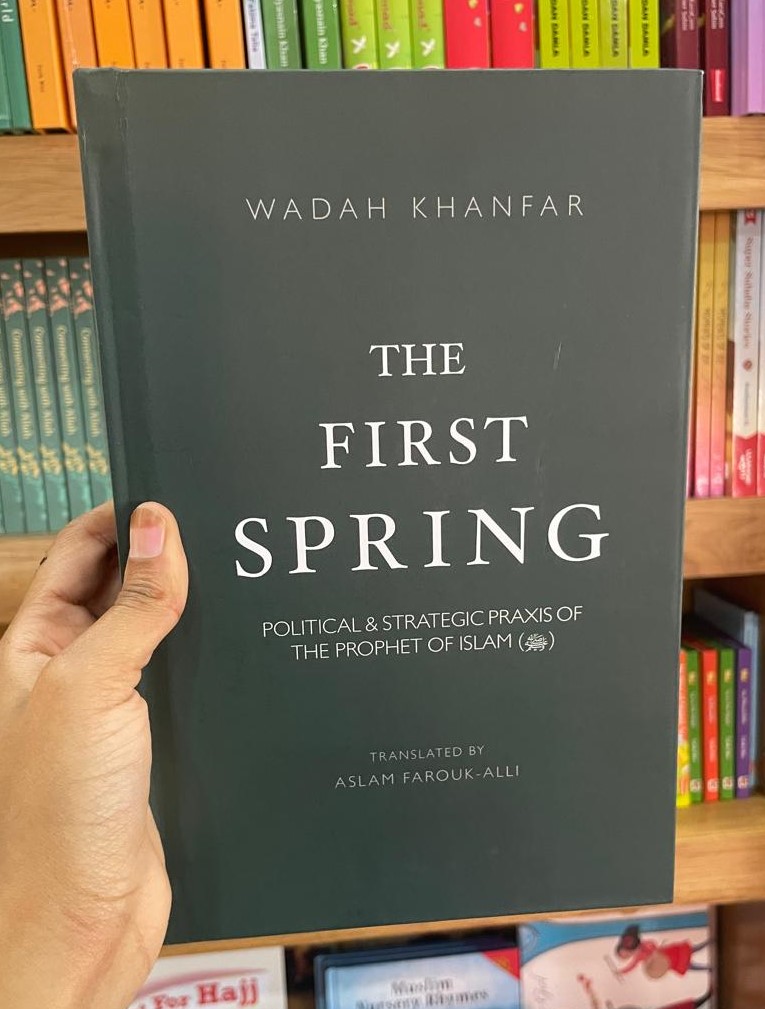
The First Spring, The Political and Strategic Praxis of the Prophet Of Islam (PBUH)
By Shafiq Morton
IN THE 21ST CENTURY, as the “Western civilisational” model starts to crumble – epitomised by its lack of conscience on Gaza, the moral decrepitude of its political leadership and its climate-damaging hypocrisy – no one can deny that the world is in an interesting place right now.
In the Muslim sphere, blighted by as doubtful leadership as the “west”, a heavy price is being paid too. Here, we face the wages of over 100 years of theological reductionism – or neo-Wahhabi “Islamic Protestantism” – manipulated to create modern kingdoms and to control its peoples.
Some even say this scenario was created by the 19th-century powers, who were deliberately dividing Islam while dismantling the Ottoman and Mughal Empires. Conspiracy or not, if you are governed by dictators and if you bleach the colour out of Deen to rule, you do create a social nihilism – a place where faith becomes a dusty ritual, and where the very centre of civil society withers and dies from lack of oxygen.
In this harsh and unforgiving environment – imbalanced by fear and anger as opposed to prophetic gentleness and mercy – we are promised hellfire instead of hope and heaven and a prison cell if we speak out.
This explains the general disenchantment of youth today. Not only has their faith become unapproachable, but in countries like Egypt and Yemen, even their revolutions have let them down. In the politically secular “west” (which also includes Zionist Israel), the interests of big capital and the military-industrial complex clash with the values of Islam. That, for many, is a zero-sum game.
But behind the stereotypes – and carrying with them nearly 1,500 years of tradition – Sunni scholars have remained quietly steadfast in asserting that the Seerah, the biography of the Prophet (SAW), offers us the best rational tool for survival in our rapidly changing, conflict-ridden world.
It was the late Sayyid Muhammad ‘Alawi al-Maliki who said that to find guidance we had to use the Prophet (SAW) as our shaykh. The Seerah is indeed a vital, guiding component of Deen. Over the centuries there have been a number of significant Seerah works from scholars such as Ibn Hisham, Ibn Kathir and Qadi Iyad.
Over the past 50 years, we have also seen the excellent biographies of Muhammad Haykal, Martin Lings and Shaykh Ramadan al-Buti, all focusing on different aspects of the Prophet’s (SAW) life. Seerah is a rich genre, and we have only scratched the surface here in terms of its auspicious authors.
One of our most recent Seerahs, The First Spring, the Political and Strategic Praxis of the Prophet of Islam, penned by Wadah Khanfar, is a most welcome and hugely pertinent addition to our contemporary Prophetic discourse.
As a son of Jenin, as a journalist who worked in South Africa and Iraq, and as the former Director General of Al-Jazeera, he has been a close witness to global politics. This has also allowed him to examine the relevancy of prophetic leadership against the background of his own experiences.
The book starts in a dramatic fashion. The Quraysh leader, a broken Abu Sufyan, is shuffling on his staff to inform his people that their only option is to surrender to a 10,000-strong Muslim force outside Makkah. Marginalised by impetuous young tribal Turks, it has been left to Abu Sufyan to break the news of surrender to a frightened people.
This, of course, is the result of the Bani Bakr – a tribe allied to Makkah – breaking the Treaty of Hudaybiya signed between the Prophet (SAW) and the Quraysh by attacking the Bani Khuza’ – a tribe allied to Madinah. This act of rashness destroyed a ten year agreement after only two years, handing victory to the Prophet (SAW) on a plate.
The First Spring departs from other Seerahs in that the author spends time creating a specific socio-political context. His focus on understanding the issues of the day allows us to see clearly how the Prophet (SAW) operated against the background of the declining Persian and Byzantine superpowers.
While political praxis forms the backbone of this book, classical sources have been consistently referenced. We are swept up in a compelling, detailed narrative towards the victory of Makkah and a new dawn for Islam. We are exposed to the Prophet’s (SAW) strategies of always being organised, engaged and informed.
As Khanfar writes, “The Prophet’s (SAW) plans were not based on vain desires, wishful thinking, or emotional reactions…his situational assessments were always realistic, and his planning always practical…the Muslims never fought an enemy that was at the peak of its strength…the Prophet (SAW) also developed precise insight into the global and regional balance of forces…”
Significantly, the first notions of this book were germinated while Khanfar was resident in South Africa during the 1990s and hosting Muslim Youth Movement (MYM) halqas, or circles of learning, on the Prophet’s (SAW) life.
It is also significant that this book, originally written in Arabic, was translated by South African diplomat Aslam Farouk-Alli and edited by Na’eem Jeenah, a former MYM president. The translation and editing of this book, published by the Afro-Middle East Centre, is of excellent quality.
This will ensure that The First Spring, the Political and Strategic Praxis of the Prophet of Islam (PBUH) – surely a classic of its kind – will stand proudly on the shelf next to other Seerahs, inspiring and educating us that there really are answers to today’s problems.
But we do have to act now. For if we do utilise the prophetic model, eloquently portrayed in this book by Wadah Khanfar, we as Muslims will begin to enjoy the prospects of a much brighter future. This as we begin to transform the society we live in, embraced by the Mercy of the Most Merciful.











